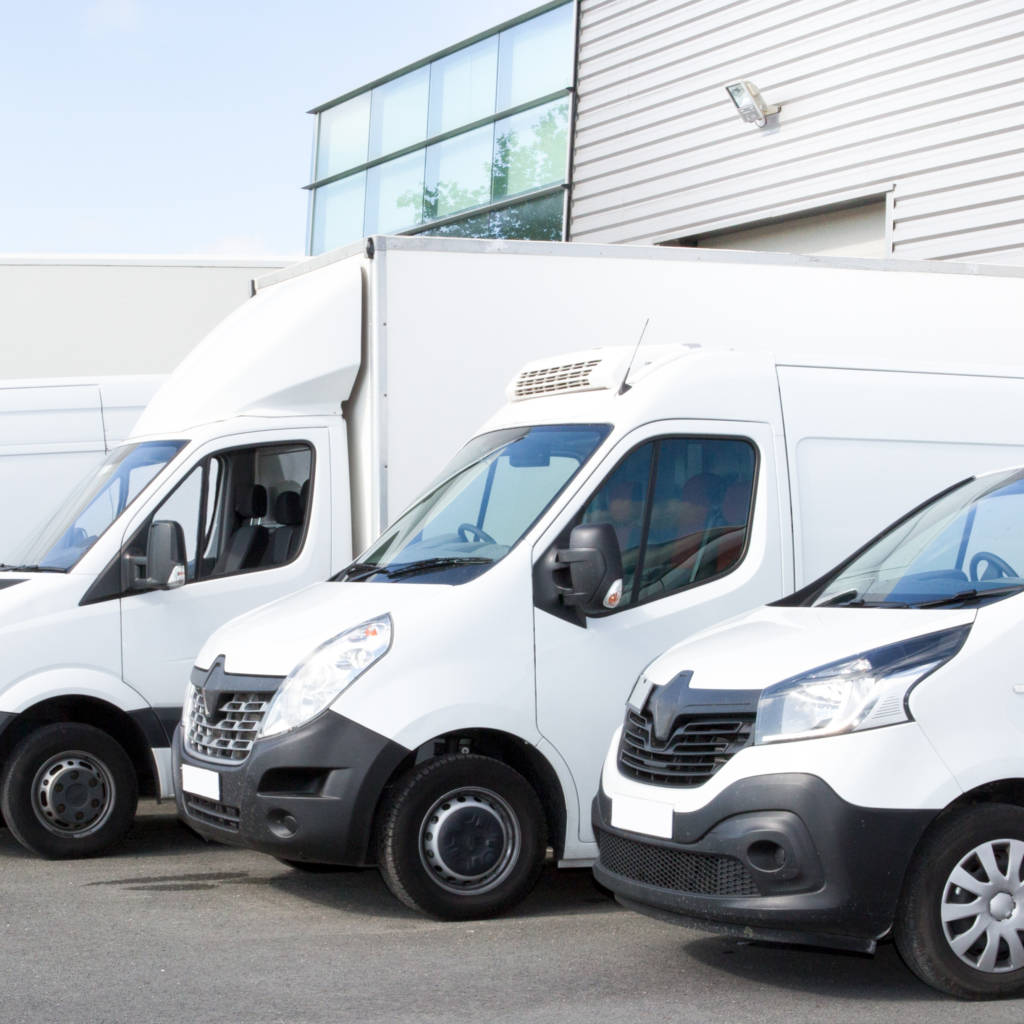Does My Business Need Fleet Insurance?
If your business has more than one vehicle which is used primarily for business then fleet insurance will insure them all on one policy, often saving you money and always saving you time.
Keeping track of the renewal dates and policy features of a number of vehicles, which could be driven by a large number of people is administrative hell.
But whether you are sending employers out in company-owned vehicles to visit clients, generate new business, carry out jobs or transport goods and materials, it’s a legal requirement to have the correct level of insurance.
This is where a fleet insurance policy can protect your vehicles/drivers and save on the paperwork!
What is fleet insurance?
Fleet insurance is a single policy that covers multiple commercial vehicles. It’s designed for businesses who use company-owned vehicles.
Not having to constantly check on multiple renewal dates and payment dates means your fleet will always be insured, keeping you compliant as no cars, vans or people will be left accidentally uninsured.
Consolidating insurance policies for a whole fleet makes it far easy to manage a high number of vehicles while reducing the amount of time you spend on admin.
It can also save you money as bulk buying motor insurance from a single provider, you may receive substantial discounts, compared with purchasing separate policies for each vehicle from various insurers.
How many vehicles make up a fleet?
The number of vehicles considered a fleet varies according to the provider, but companies can typically find a fleet insurance policy for as little as two vehicles.
Many providers limit cover to a maximum of 500 motors, but extensive policies can cover fleet sizes of several thousand for larger enterprises.
If you’re unsure whether the number of vehicles in your fleet will change then don’t worry. Many insurance providers will allow you to modify the policy over the policy term, whether that’s removing or adding vehicles.
It’s common practice for companies using large fleets to change their cars around regularly, due to wear and tear or fluctuations in demand.
You must make sure that you update your policy every time you make any changes to your fleet, or you risk invalidating your policy and leaving your business uninsured.
It’s important to note that fleet insurance policies are restricted to the vehicles specified. If any of your drivers are involved in an accident in a vehicle which isn’t declared on the policy, then the fleet policy won’t cover the claim or any costs of damage, injury or compensation.

What is covered by fleet insurance?
Fleet insurance products are available for most vehicle types, including cars, vans, buses and trucks.
Some policies can cater for businesses which operate a number of different vehicles under what’s known as an ‘any vehicle’ policy. This can be handy for companies that use different vehicles for different purposes, or for larger fleets where vehicles are likely to change throughout the life of the policy.
Generally, a fleet insurance policy offers similar coverage to a standard car or vehicle policy, alongside some additional features designed for business purposes.
A fleet insurance policy can cover claims relating to any of the following, depending on the level of cover you choose:
- loss or damage to your vehicles
- vehicle recovery in the event of an accident or breakdown
- legal fees
- damage to the windows or windscreens
- replacement locks should your keys be stolen
- support towards medical expenses should you or a passenger sustain an injury in an accident in an insured vehicle.
- driving abroad, usually with a maximum limit of days allowed per year
- protection for any personal belongings lost or damaged in an insured vehicle
- trailers attached to a vehicle insured under the policy
- the use of a courtesy car while the insured vehicle is in for repair
- breakdown cover.
Some of these features will come as standard while others will be optional extras so it’s important to spend time exploring your exact needs.
Which aspects of cover appear on a fleet insurance policy largely depends on the level of motor insurance a company chooses, typically third-party only, third party, fire and theft, or fully comprehensive.
It’s also essential to check is any specific vehicles are excluded by your fleet insurance policy, typically motorbikes, forklift trucks and excavators are excluded.
You might also find that vehicles insured under a separate, private policy, or vehicles not registered in the UK will be exempt.
Similarly, fleet insurance policies cannot cover all types of claims. Some common exclusions to watch out for are:
- vehicle theft due to the driver’s negligence, such as leaving the vehicle unlocked
- damage to the tyres or body underside
- mechanical breakdown.
How much does fleet insurance cost?
There are many factors that come into play when it comes to determining how much your fleet insurance will cost.
Your premium will largely depend on the level of cover you choose, how many vehicles are to be included as well as how many drivers will be listed and the types of vehicles which will be driven.
The more people or vehicles, you insure, the more you will tend to pay.
Insurers gauge their level of risk by asking you a series of questions on the vehicles you want to include on the policy. The information you have to provide typically includes:
- how many vehicles you have in your fleet
- what type of vehicles they are
- how old they are
- the condition of the vehicles
- how often the vehicles are in use
- what they are used for
- where they are kept overnight.
If you opt for a comprehensive level of cover, you typically have insurance for your drivers as well. If this is the case, the insurance company usually wants detailed information about the drivers on your policy to create a bespoke quote. Factors related to the drivers, which may affect your premiums include:
- whether you want an Any Driver policy or a Named Driver policy
- the number of drivers on the policy
- the age of the drivers
- any previous driving convictions of any of the drivers.
If you want to name drivers on your policy, you have to provide information about each employee that may drive your vehicles, including their age and claims history.
Summary
Insurance for your vehicles is a legal requirement, and fleet insurance is a way to simplify this process for businesses with multiple company cars, vans or other vehicles.
Having a single policy and a single renewal date takes the headache out of vehicle insurance administration, saving companies valuable time and money.
Almost all drivers will have a bump of some kind over their lifetime, but when a business is involved, a simple claim can turn into a larger legal dispute.
Whether vehicles are an integral part of your business operations or an added perk for the management team, having the right insurance in place can protect other road users, your valuable capital assets and your employees.
Fleet insurance policies are designed to shoulder the costs of expensive vehicle claims, keeping your business on the road when things go wrong.
Enquire about our excellent range of fleet insurance options now!

